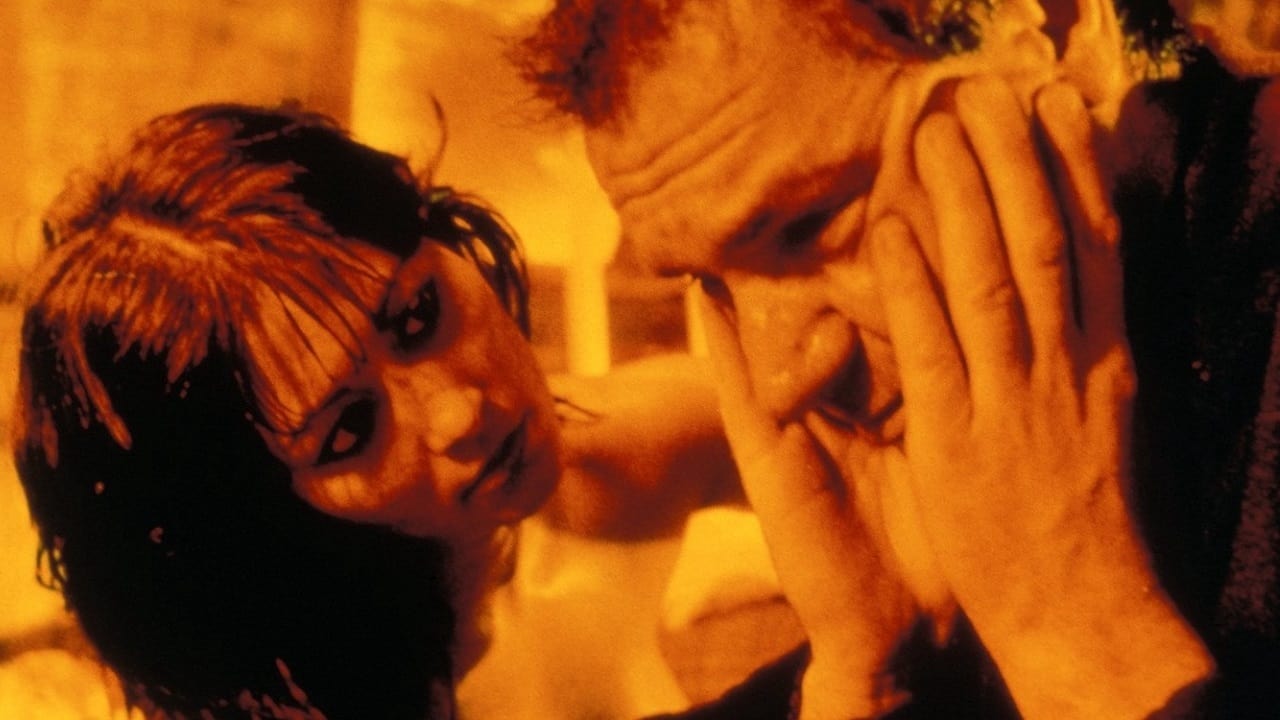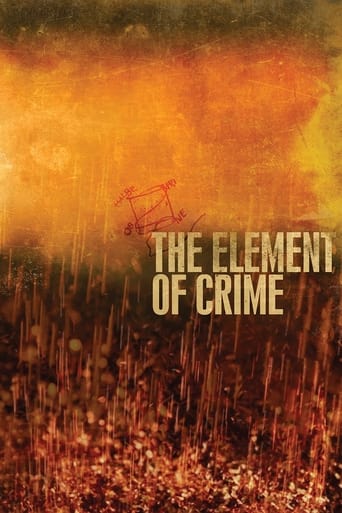



You won't be disappointed!
Best movie of this year hands down!
Am i the only one who thinks........Average?
There is just so much movie here. For some it may be too much. But in the same secretly sarcastic way most telemarketers say the phrase, the title of this one is particularly apt.
View MoreRegarding from the Art perspective, with the quality criterias based on Art theory, this movie is by far on of the most intressting and inovative Film made ever. To say that we have to emphasize on the "Film as Art" as the art teoritician Rudolph Arnheim formulated and meaning Film as a complexitiy of Materials; Narration is only one part of it.
View MoreVon Trier's first film ranks with anything he's ever done visually, but otherwise it feels very much like a first movie, even a student film by a student of obvious genius. While Von Trier's visual influences are more obvious here than usual- namely, Tarkovsky, he borrows the style and perhaps transcends it. The use of water here is perhaps more dazzling than anything Tarkovsky achieved. Their are surfaces that seem impossible and dream-like, above and below the abyss at once. It is very dream-like, and that is a problem. The plot is a rather over-baked Kafka-ized noir cliché. As in "Europa," its all about how all is already written, but not in the religious, apocalyptic sense of his later work. Here, the apocalypse has already happened. All presence is absence. Which, I think, makes Von Trier a filmmaker alert to his cultural moment. Everything was inevitablest, post-modern irony until shortly before 911, and then the possibility of radical rupture re-introduced itself into the world, and into Von Trier's art. Change, be it glorious or disastrous, messianic or satanic, was and is again on the menu.
View More"Do you believe me? I'm in the middle of Europe screwing a Volkswagen 1200." A brilliantly esoteric pseudo-murder-mystery, The Element of Crime brings to mind the work of Paul Auster, stories like Ghosts and City of Glass. The fact that the entire film is communicated through the hypnosis-induced memories of a former detective leads to a breathtaking heightened reality that makes the film's dreamy visual sensibility irresistible. I don't know if it's thanks to Von Trier or Criterion (who deigned this movie one of the first entries into their Collection), but the print is GORGEOUS, and is damn near impossibly clean for a film made in 1984. Amadeus didn't look this good the day it came out.Like Auster's masterpieces, the film is technically about a murder, a detective named Fisher (Michael Elphick) returning to Europe from Cairo after a thirteen-year absence, come back to investigate a child killer named Harry Grey, as informed by his mentor Osborne (Esmond Knight), a mysterious prostitute named Kim (Me Me Lai) and antagonistic Chief of Police Kramer (Jerold Wells). He is telling all this from memory to a therapist (Ahmed El Shenawi), and the atmosphere is in kind.The film is completely shot in a burnt-umber tint, with occasional hints of blue coming through for minor things like police lights, and I can't be exact, but I would be willing to bet that the entire film is shot at nighttime, and at least 90% of it is during a severe rainstorm (Dark City, eat your heart out). It really is the doom-and-gloom special, and it's perfect for maintaining the mood the film is looking to put forth. Like Rose Hobart, it's the combination that makes all the difference. Alone, any of these elements (of crime?! No.) could have been comfortable, even soothing, but in tandem, they're haunting and unsettling, and kept me on the edge even at times when nothing of substance was occurring on screen.This is not to say that a lot of tangible things DO occur on screen. Anyone coming into The Element of Crime looking for a straightforward detective movie, where he follows the clues and solves the crime, is going to be sorely disappointed. This is why I'm glad I had read City of Glass previously. I realized straight away that this wasn't going to be ordinary or obvious. For Fisher, what originally begins as an investigation very quickly spirals down into a series of bizarre encounters and off-the-wall experiences, and he gets so deep into his desperate search and into his own psyche that he begins to lose his identity, and damn near his capacity for rational thought, and the results are spellbinding.Of course, considering the director, I should have realized substantially sooner than the start of the film that this wasn't going to be Agatha Christie ordinary. Ol' Lars doesn't do ordinary. Hell, even his most 'commercial' film (his office comedy The Boss of It All) is a long way from starring Will Smith, and his greatest films, like Dogville or Zentropa, are "off" just enough to be unique. I think this is the thing that attracts people who might not be aligned with Von Trier's world view, his cinematic approach, might find themselves lost in an area that they aren't comfortable with. For all you crazy kids who think you might be, give Von Trier's debut film a whirl. Be warned, though: It just might whirl you back.{Grade: 8.5/10 (B+) / #11 (of 26) of 1984}
View More.. Or how to make a Tarkovskian Noir.Using all the staples of the master - the sepia overlay, the fluid tracking shots, the long takes, etc. Von Trier inverts the spiritual leanings of the former to serve his own nihilistic ends.Lars is a troublemaker and an obscenely gifted filmmaker - a lethal combination, and the result is a deeply unsettling and equally engaging piece of work, which more than hints at the greatness to follow.Tom Elling's dexterous and inventive cinematography is par excellence - a milestone in terms of technical and aesthetic brilliance.One of the more interesting debut films ever made, Von Trier channels The Third Man, Borges and even Hitchcock as he playfully sets up his cinematic game of cat and mouse.Of course, plot/meaning as Fisher himself finds out, is secondary to mood.
View More